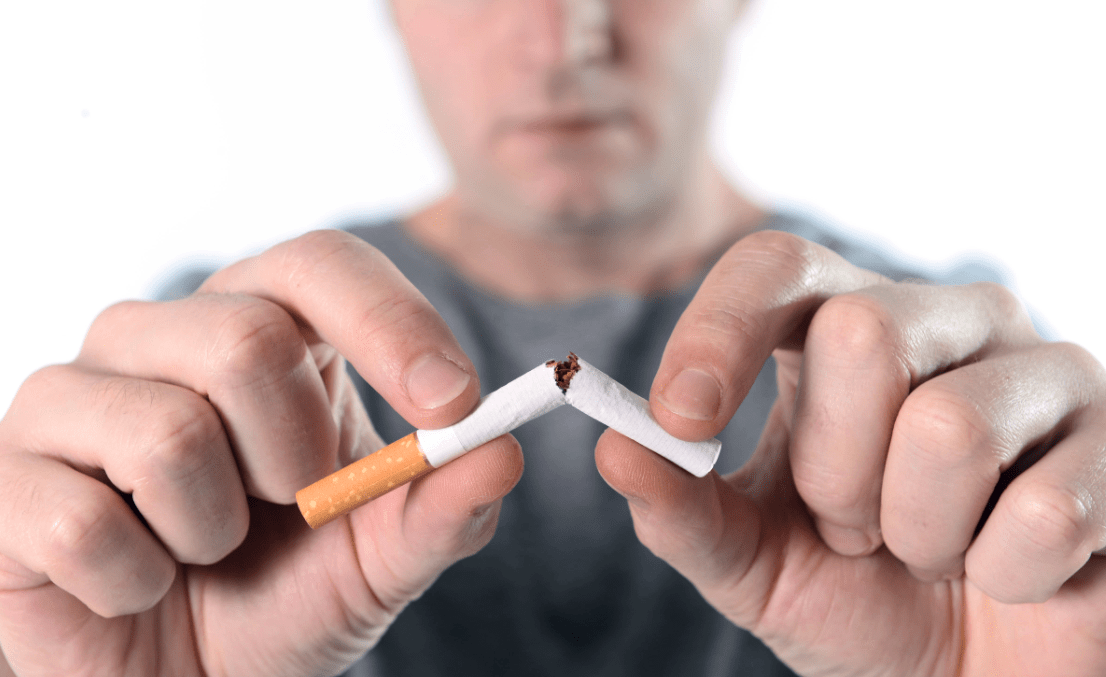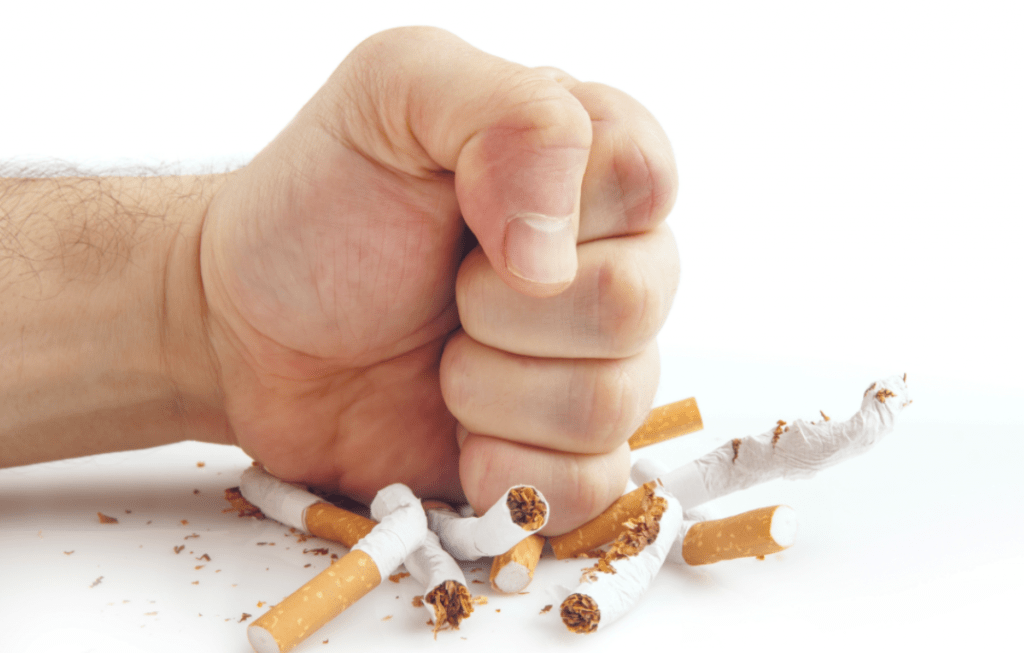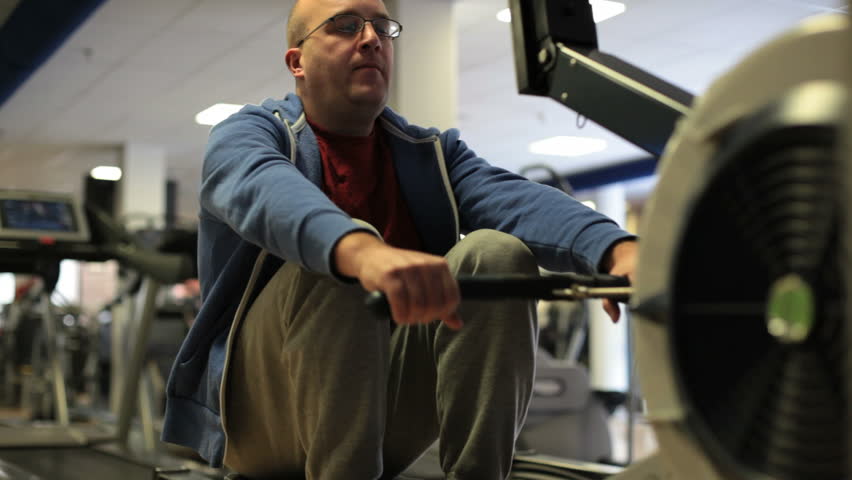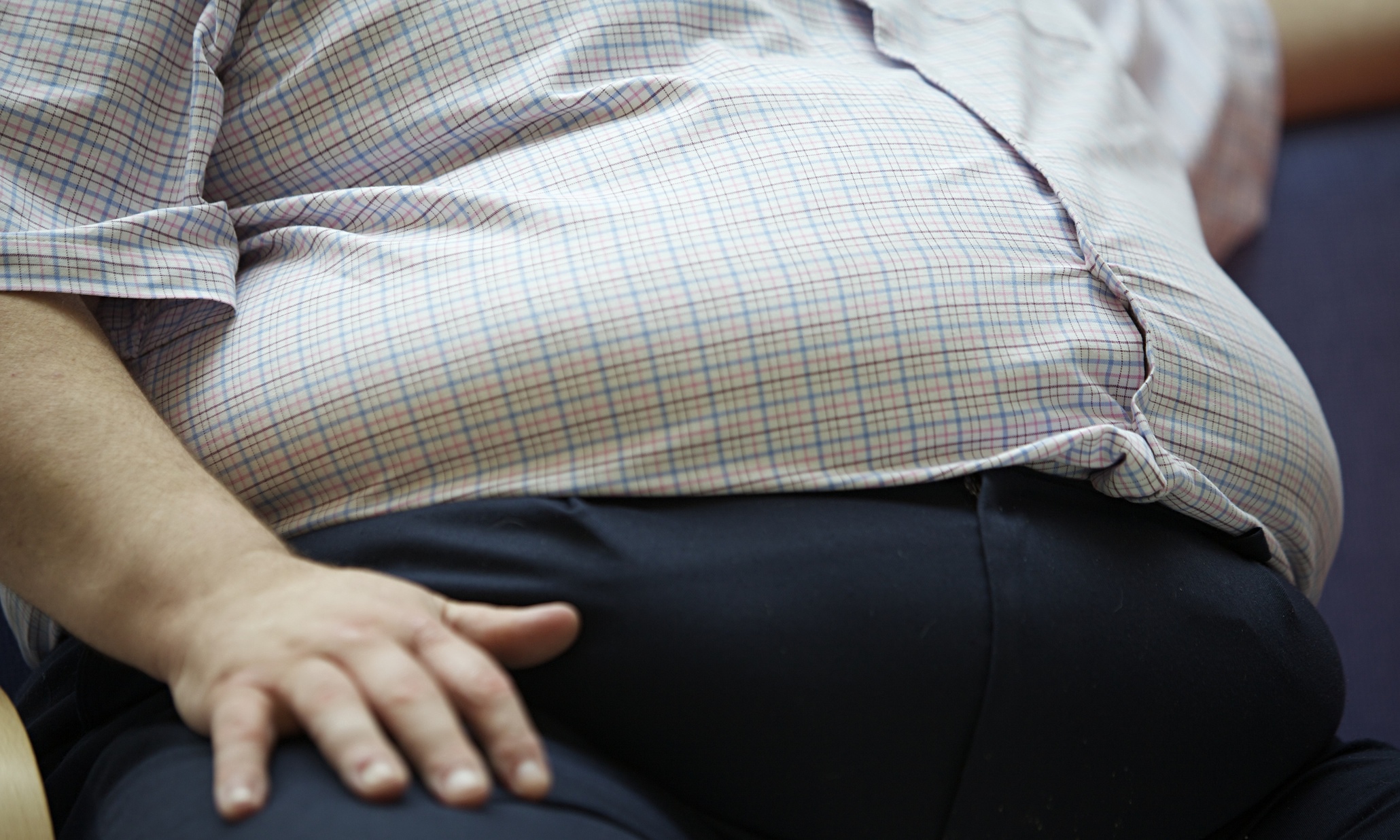So, you made up your mind and you have finally decided to quit smoking.

First, congratulate yourself, this is the first step to a smoke-free life.
You’d be surprised at how many people don’t take this step. Now comes the second stepping stone, actually doing it.
Quitting smoking is not easy, it requires tons of willpower, self-discipline, and the ability to manage anxiety. But, don’t worry, I managed to quit smoking, after years, and finally, I found the best road map to a smoke-free life. So, keep reading, I’m sure this article may change your life.
Why You Need To Stop Smoking
It’s important to understand how smoking affects your health. Recent studies have shown that the leading causes of death around the world are caused largely by smoking. Even one cigarette a day increases your risk of a heart attack by 50%. Heavy smokers are at an even higher risk. Any amount of tobacco is harmful, and quitting is the best option.
Now, let’s take a look at the benefits of quitting smoking:
● The chances of having heart disease, tumors, and cancer are significantly reduced.
● Your skin will look better, the yellowing of nails and teeth will disappear.
● Food recovers its flavor and the sense of smell improves quickly.
● You will be able to exercise with much less effort.
● In a short time, you can breathe more easily.
● Your overall health improves considerably.
● Lower blood pressure.
Unfortunately, it is not easy. Many smokers fear withdrawal symptoms, although these symptoms disappear within one week. Yet, smoking doesn’t happen only for chemical dependence, but it is also done out of habit. And that is the key: knowing how to break a habit.
Here are 5 Tips To Help You Quit Smoking According To Neuroscience:
5. Be aware.
Finished lunch or dinner and already feeling like lighting a cigarette?
Bored at work, wanting to simply get out to smoke a cigarette? After sex smoking? Need a little extra help in the bathroom? Yes, you feel like you need to allow yourself those little pleasures in life, but the benefits of quitting smoking are far better, so you need to be strong and push yourself.
However, don’t worry. Breaking a bad habit is not as hard as you think it is! According to Bachrach, a professor at Harvard, habits are easy to change if you understand your body. You see, every cell in your body is in constant transformation. The intestine cells are replaced every 2-3 days, skin cells every 2 weeks, the blood cells are replaced every other month, and so on…
The same thing happens at molecular levels, for instance, your DNA, which contains the genetic code that determines a lot of who we are. The expression of our genes, which we thought was a fixed trait, can also change over time based on your habits. Your body is not the same it was a week ago.
This can also apply to your mind, your thoughts shape your actions, and your actions shape your thought. The more you repeat an action (whether good or bad) the more you internalize it until it actually becomes a habit. So, step 1 is to be simply aware that you can change, and you decide when you stop smoking!
4. Break the habit.
The first step to break a habit is to be aware of it before doing it.
Were you just about to light a cigarette without even noticing? First, stop, breathe and count until 100. If you don’t pause, it is difficult to control habits that don’t let us change. So, start taking a break before you do anything you could regret.
If a stimulus makes you feel bad, visually withdraw from that, and change the environment. For example, get out of that room or go for a walk. When you visually move away from the stimulus that causes the reaction that pushes you to smoke, you are taking the forest step to recover part of your brain. This happens because habits run in the backend of your brain, in the unconscious, so you are not even aware of what is truly happening.
3. Breathe and relax.
After visually moving away from your trigger, take a few deep breaths.
Three or four deep breathes will be enough. When a strong stimulus invades you, breathing becomes agitated, which means your brain receives less oxygen.
This can affect the cleansing of the toxins accumulated in our neurons. Oxygen allows your cells to breathe and detoxify. This is why breathing techniques are so helpful. It allows you to think clearer and to make a better decision.
2. Swap it!

wallup.net
Our brain does not like change, it challenges it, it breaks homeostasis and it’s too much work.
Did you know our brains are extremely lazy? It needs to save a lot of energy to perform too many activities, it is the control base of your entire body, and on top of that, it is in charge of thinking. Ugh! No wonder why it’s lazy.
This is why it simply does not like change and think of breaking a habit as a complete rupture of your routine. Even though for some it may sound extremely boring, our brains love routines, that’s why breaking a habit is not that easy. But here’s a quick tip that neuroscience has to offer simply swap a bad habit with a good one. For example, instead of having a cigarette, have a glass of water. And yes, it might sound dumb or even not that existing, but it works!
1. Avoid smokers, at least for the first month.
Such as spending more time with non-smokers will ease the desire to smoke, spending more time with smokers will likely increase your desire to smoke.
If you want to quit smoking, tell all your friends and family, and ask those who smoke to please not do it in front of you for the first month.
Our brains take around 20-30 days to break a habit. So, build yourself up with a lot of willpower for the first month, you’ll need it. But I promise you, after the first month it gets much easier until you reach a point when you naturally don’t even think of smoking.













